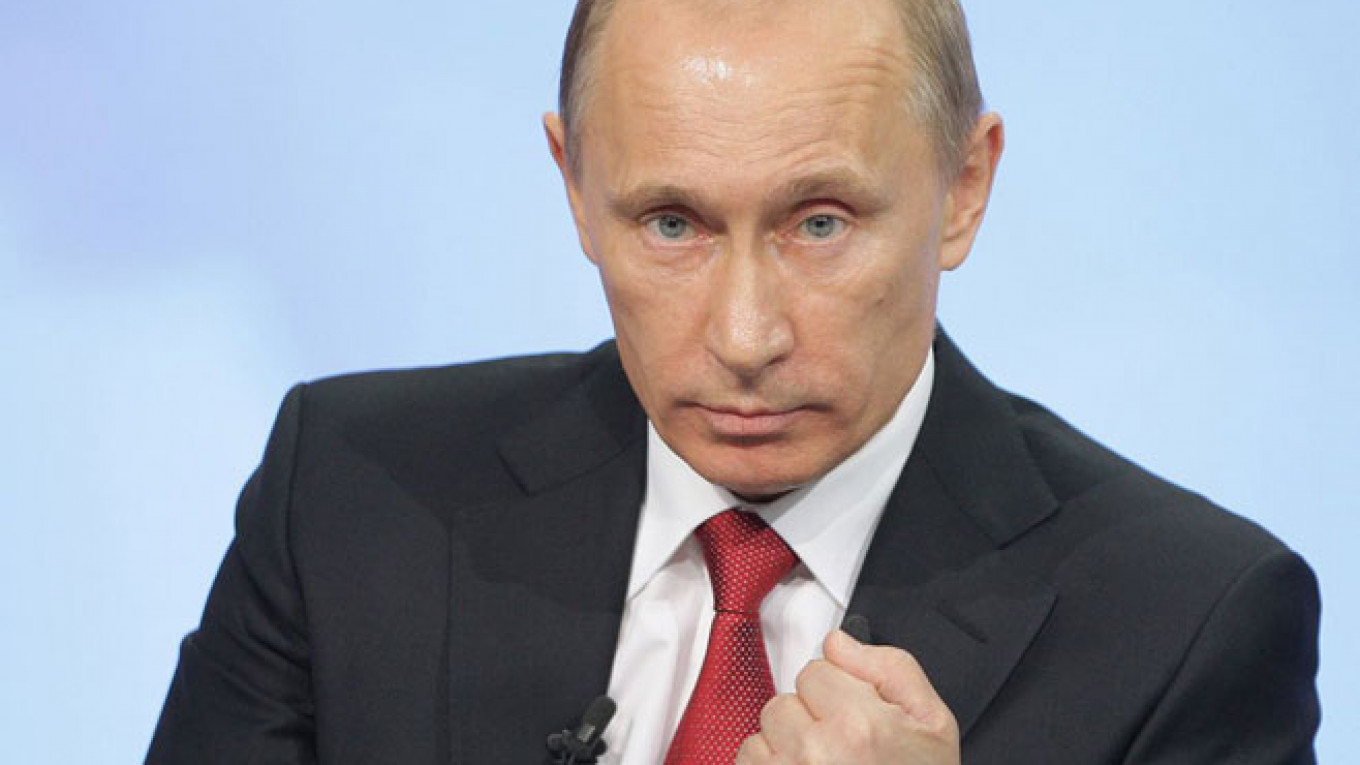Political crises are all alike, as Leo Tolstoy might have written had he been a columnist instead of a novelist. At least they are alike in their early stages. At first, there is always a shortage of reliable information, but no shortage of pontificating by pundits and posturing by politicians.
That lack of reliable information does not hinder and in some cases even helps pundits to reach for the handiest historical analogy that for some reason is inevitably Nazi-related. Two people who should have known better — former high officials, scholars and East Europeans by origin, Zbigniew Brzezinski and Madeleine Albright — appeared on Sunday morning television to quickly agree that the Russian incursion into the Crimea could best be compared with Hitler's march into the Sudetenland. It was nothing of the sort. The incursion into Crimea was best compared to Russia's war with Georgia in 2008 when the causes, not the justifications, were similar.
The comparison with Sudetenland is obnoxious for two other reasons. First, it demonizes or "Hitlerizes" Putin, a dangerous oversimplification that can lead to a dangerously oversimplified response. Second, it turns anyone who does not agree with the comparison into appeasers.
Soon, politicians were making grandiose statements of principle, specifically of the two opposing principles — self-determination versus territorial integrity — that are always made in such a situation. U.S. protests about armed intervention after Iraq sound a bit quaint. U.S. politicians began issuing threats, most of which rang fairly hollow.
The threats to isolate Russia economically seem to assume that Russia will simply cower and accept economic punishment, whereas in fact Russia has some considerable leverage in the current situation. Is Europe going to cut off its own supply of gas?
In addition, the logistical epic of withdrawal from Afghanistan will be immeasurably more costly and complex without Russia allowing the use of its territory and airspace for transshipment of material. And it would be a huge embarrassment for the U.S. if Moscow suddenly refused U.S. astronauts seats on their rockets to the space station.
Instead of emphasizing the danger Russians were supposedly facing in Ukraine, the Kremlin could have argued that Ukraine has been independent as long as Russia, Lithuania, Kazakhstan and all the other republics that came into being when the Soviet Union collapsed. And though it has achieved some democratic practices, it did chase out its democratically elected president like Egypt did, never the most edifying spectacle and lately seemed to be teetering on the brink of political and economic bankruptcy. No country likes the prospect of a failing state on its borders, especially when it contains a significant number of its citizens. The U.S. would not sit idly by if Northern Mexico collapsed into drug wars that threatened U.S. border security. But that's not the real reason for the incursion either.
In 1990, the U.S. government via Secretary of State James Baker promised Soviet leader Mikhail Gorbachev that if he withdrew Soviet troops from East Germany thereby allowing the two Germanies to reunite, NATO would never move "one inch to the east." But, of course, NATO did in fact move hundreds of kilometers to the east. If Ukraine, by drift or deliberate choice, were to enter that alliance, Russia would be ringed by NATO from the Baltic to the Black Sea.
For Putin and those who share his mindset, that situation is absolutely unacceptable. It poses an existential threat and so has provoked a Darwinian survival response. For the Kremlin, Ukraine is the reddest of lines.
Richard Lourie is the author of "The Autobiography of Joseph Stalin" and "Sakharov: A Biography."
A Message from The Moscow Times:
Dear readers,
We are facing unprecedented challenges. Russia's Prosecutor General's Office has designated The Moscow Times as an "undesirable" organization, criminalizing our work and putting our staff at risk of prosecution. This follows our earlier unjust labeling as a "foreign agent."
These actions are direct attempts to silence independent journalism in Russia. The authorities claim our work "discredits the decisions of the Russian leadership." We see things differently: we strive to provide accurate, unbiased reporting on Russia.
We, the journalists of The Moscow Times, refuse to be silenced. But to continue our work, we need your help.
Your support, no matter how small, makes a world of difference. If you can, please support us monthly starting from just $2. It's quick to set up, and every contribution makes a significant impact.
By supporting The Moscow Times, you're defending open, independent journalism in the face of repression. Thank you for standing with us.
Remind me later.






